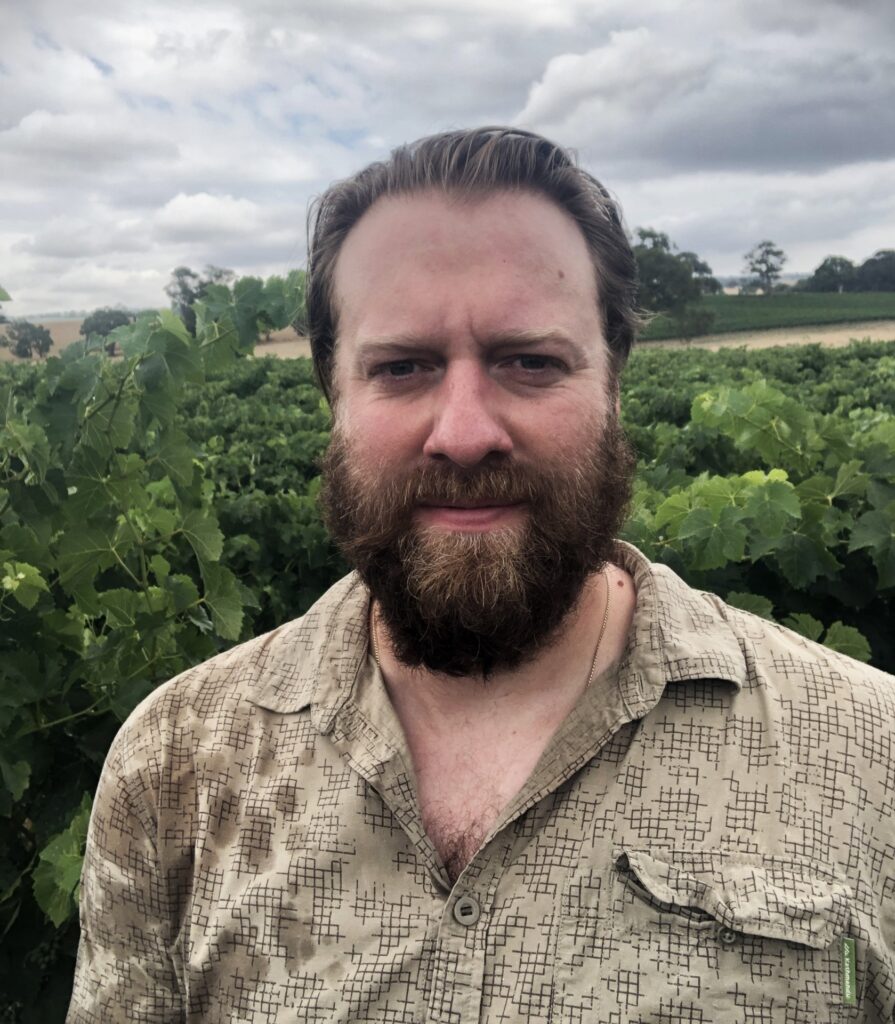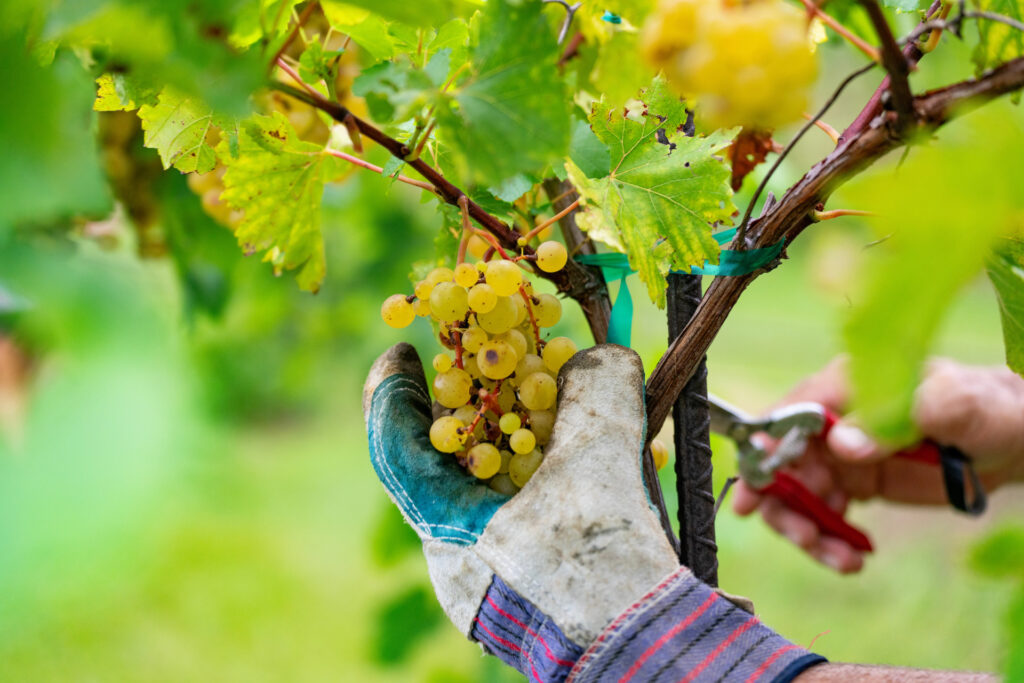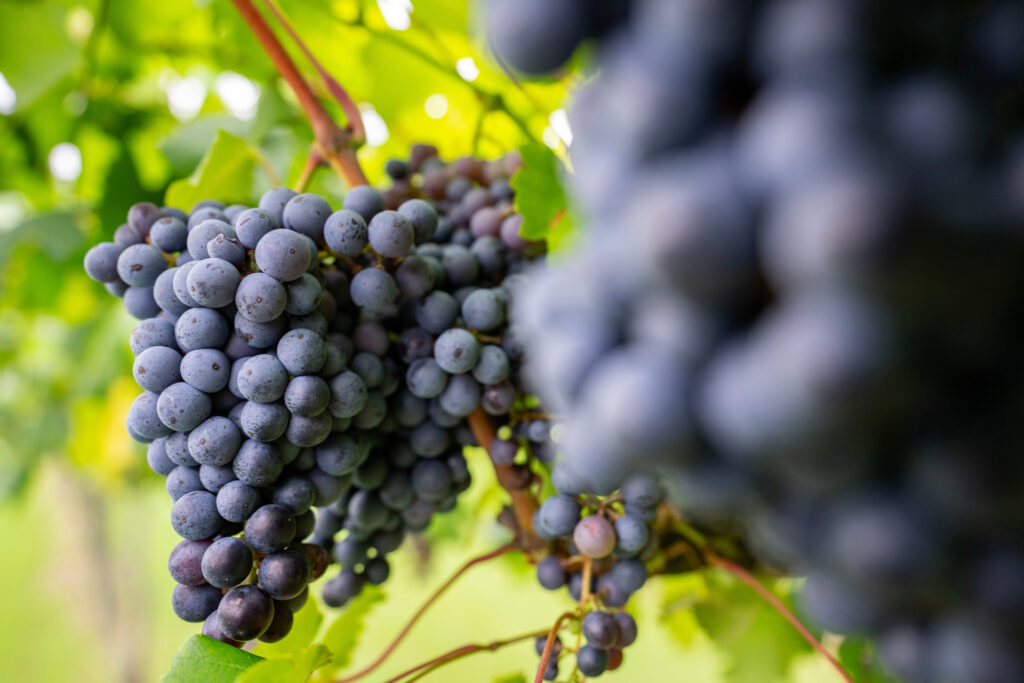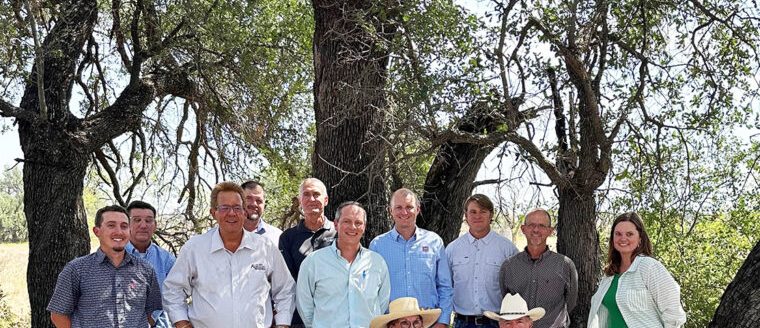Patrick O’Brien, Ph.D., Texas A&M AgriLife Extension Service viticulture specialist, is bringing science to the art of winemaking in the Texas High Plains.
O’Brien arrived in Lubbock in mid-August after spending seven years in South Australia finishing his graduate studies in viticulture while working and performing research in vineyards across that state.
Since he arrived, O’Brien has developed an even greater appreciation for vineyards, growers and the Texas winemaking industry, and his role within the Texas A&M College of Agriculture and Life Sciences Department of Horticultural Sciences.

“Texas was not on my radar until this job opening came up,” he said. “But I got really excited about the prospects when I started looking deeper into local production in the High Plains and Texas A&M and AgriLife Extension as institutions. This is a very interesting time to be involved in the wine industry in Texas because there is massive growth potential. There is real potential for the High Plains and the state to become renowned for world-class, high-quality wines.”
Amit Dhingra, Ph.D., head of the Department of Horticultural Sciences, agrees with O’Brien’s assessment of the Texas wine industry’s potential. The High Plains is a key wine grape production area for the burgeoning Texas wine industry and is home to 80% of the state’s wine grape production.
O’Brien joins a team of 11 AgriLife Extension specialists and researchers dedicated to viticulture and enology in regions across the state, including the Gulf Coast, Hill Country, North Texas and High Plains.
“Dr. O’Brien’s arrival enhances our ability to meet our mission as a land-grant institution and find economically and environmentally sustainable solutions to regional challenges wine grape growers and the industry face,” Dhingra said. “We are excited to have him here as a viticulture specialist to work with growers and winemakers to help them produce the highest quality Texas wine grapes and wines.”
Winemaking as art and science
O’Brien worked in vineyards in a number of countries during most of his academic career. He performed seasonal vine maintenance like pruning, fertilization and foliar sprays, sampled grapes for laboratory analysis, and monitored vines for pests, disease and nutritional health.
His experience has included working at multiple wineries, including a deuxième cru classé winery in Bordeaux, France. Deuxième cru classé wines are the second highest tier within the Bordeaux wine classification but considered very high quality. Later in his career, as an associate winemaker, he participated in varietal fruit assessments, helped determine blending options and supervised winemaking processes. His responsibilities included overseeing all cellar operations, including pressing, clarification, fermentation and filtration.
As a doctoral candidate at the University of Adelaide in Australia, O’Brien worked at a vineyard and orchard that included a wide range of fruit, from almonds, apples and apricots to cherries, figs, lemons, strawberries, plums and pears. He surveyed crops through various stages of maturity to control pests and diseases, collaborated with researchers performing field trials and conducted his own research.

He received his doctorate in horticulture and viticulture at the University of Adelaide in 2022 after receiving a master’s degree in viticulture and enology there and a bachelor’s in wine and plant biochemistry at the University of British Columbia.
O’Brien had always been interested in science. He discovered his career path early in his academic career as a biochemistry major. Students were taking three paths for that major: general, medical or plant and wine. While most prepared for pre-medicine or pre-pharmacy, he considered the daily work and environment he would be working in and chose viticulture.
Working in the wine industry has proved the right choice, O’Brien said. He views winemaking as equal parts art and science. There is an artistry to growing grapes and the processes that lead to creating an exceptional vintage wine, but every step is foundationally supported by and can be improved by science and scientific approaches.
The job also has some ancillary benefits, he said. There is a good combination of work in the office, lab and outdoors, wine-growing regions around the world are generally lovely areas to live or visit, and the people within the industry tend to be positive personalities who enjoy collaboration.
“Wine grape production is a very interesting industry because it combines art and science,” he said. “That appealed to me. It is also inherently the process of creating something, which is central to my nature.”
Looking forward to collaboration, challenges
O’Brien said he is excited to be in a position to help and collaborate with wine grape growers. He arrived in mid-August and has been pleasantly surprised by the collaborative spirit among growers in the High Plains and Texas.
“They’re a tight-knit group, and a lot of them are career farmers, so growing grapes is not their first rodeo,” he said. “There are unique challenges they face, and I feel blessed to be able to learn from them and determine how we can help through research or provide expertise that leads to problem-oriented solutions.”
Wine grape production experience in other countries like France, Canada and Australia provides familiarity with standard production techniques and common challenges, but he said there are unique challenges to yielding consistently high-quality grapes.
Sign up for HPJ Insights
Our weekly newsletter delivers the latest news straight to your inbox including breaking news, our exclusive columns and much more.
Danny Hillin, AgriLife Extension program specialist for the High Plains and West Texas, and the previous extension viticulture specialist, Pierre Helwi, Ph.D., established strong relationships with growers around the region, O’Brien said.
Now, O’Brien has engaged with many of them and is developing research trials focused on providing science-backed solutions to regional challenges like water scarcity, winter injury and hail damage. An example of that work is his visit to a commercial grower to collect samples to continue ongoing research looking at bud cold hardiness in different varietals.
O’Brien is open to opportunities to collaborate with growers on projects, including field trials, that can benefit the industry regionally. He said wine grape growers should feel free to reach out to him.
“I am here to help provide answers for challenges they’re facing now and what concerns are on the horizon,” he said. “Their challenges, their management practices and the technologies they are interested in utilizing are essential to directing our research here. That will make a practical and applicable difference for producers in the High Plains and the Texas wine industry.”




